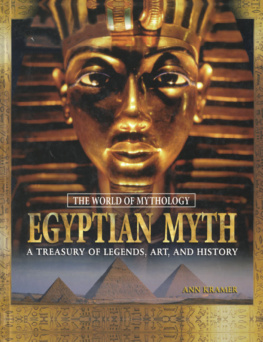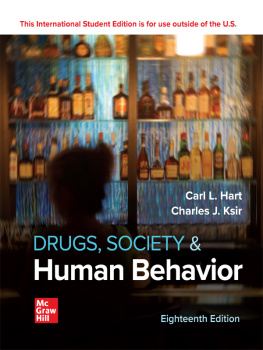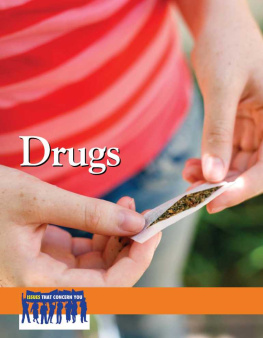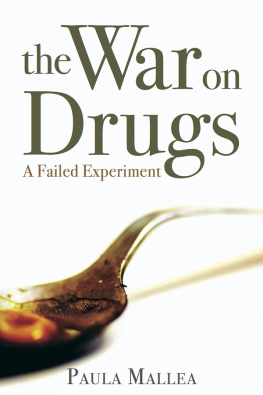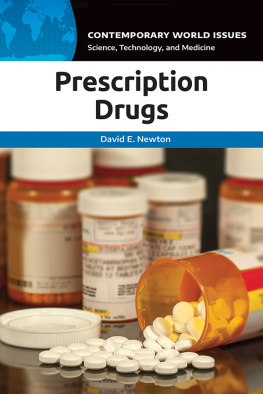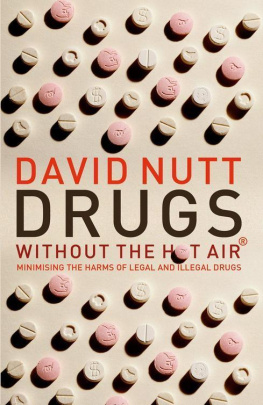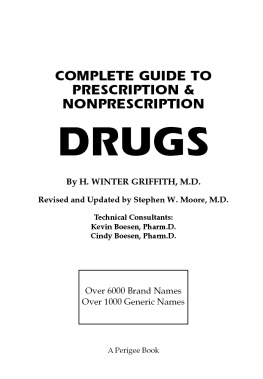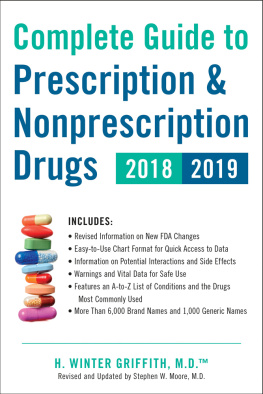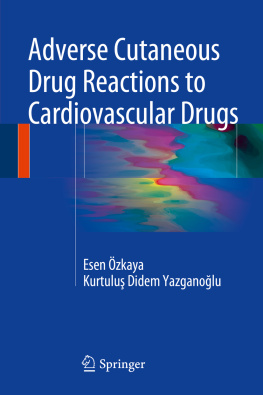Ann Kramer - Drugs
Here you can read online Ann Kramer - Drugs full text of the book (entire story) in english for free. Download pdf and epub, get meaning, cover and reviews about this ebook. year: 2012, publisher: Encyclopaedia Britannica;Britannica Digital Learning, genre: Religion. Description of the work, (preface) as well as reviews are available. Best literature library LitArk.com created for fans of good reading and offers a wide selection of genres:
Romance novel
Science fiction
Adventure
Detective
Science
History
Home and family
Prose
Art
Politics
Computer
Non-fiction
Religion
Business
Children
Humor
Choose a favorite category and find really read worthwhile books. Enjoy immersion in the world of imagination, feel the emotions of the characters or learn something new for yourself, make an fascinating discovery.

- Book:Drugs
- Author:
- Publisher:Encyclopaedia Britannica;Britannica Digital Learning
- Genre:
- Year:2012
- Rating:3 / 5
- Favourites:Add to favourites
- Your mark:
- 60
- 1
- 2
- 3
- 4
- 5
Drugs: summary, description and annotation
We offer to read an annotation, description, summary or preface (depends on what the author of the book "Drugs" wrote himself). If you haven't found the necessary information about the book — write in the comments, we will try to find it.
Drugs gives the straight facts about all sorts of drugs, from illegal street drugs to solvents and prescription drugs. It offers advice on the effects of each drug and help and support to anyone affected by a drug problem.
Drugs — read online for free the complete book (whole text) full work
Below is the text of the book, divided by pages. System saving the place of the last page read, allows you to conveniently read the book "Drugs" online for free, without having to search again every time where you left off. Put a bookmark, and you can go to the page where you finished reading at any time.
Font size:
Interval:
Bookmark:


E-book published in 2012 by Encyclopdia Britannica, Inc., in association with Arcturus Publishing Limited, 26/27 Bickels Yard, 151-153 Bermondsey Street, London SE1 3HA. Britannica, Encyclopdia Britannica, and the Thistle logo are registered trademarks of Encyclopdia Britannica, Inc.
ISBN 978-1-61535-657-7 (e-book)
This edition first published in 2010 by Arcturus Publishing
Distributed by Black Rabbit Books
P.O. Box 3263
Mankato, Minnesota 56002
Copyright 2010 Arcturus Publishing Limited
The right of Ann Kramer to be identified as the author of this work has been asserted by her in accordance with the Copyright, Designs and Patents Act 1988.
All rights reserved.
Planned and produced by Discovery Books Ltd.
www.discoverybooks.net
Managing editor for Discovery Books: Rachel Tisdale
Editors: Amy Bauman and Juliet Mozley
Designer: D. R. ink
Consultant: Xanthe Fry, School Counselor and Educational Consultant
Editor for U.S. edition: Amy Bauman
Picture researcher: Tamsin Osler
Library of Congress Cataloging-in-Publication Data
Kramer, Ann.
Drugs / Ann Kramer.
p. cm. -- (Teen FAQ)
Includes index.
1. Drug abuse--Juvenile literature. 2. Drugs--Juvenile literature. 3. Drugs of abuse-Juvenile literature. I. Title.
HV5809.5.K73 2011
613.8--dc22
2010010639
Picture credits
Corbis: cover, 9 (Falko Updarp), 20 (Scott Houston/Sygma), 35 (Bob Thomas), 36 (Mediscan), 40 (LWA-Dann Tardif). Getty Images: 13 (Supernova), 14 (Dimas Ardian/Stringer), 17 (Steve Allen), 19 (Chris Jackson), 32 (Luca Zampedri). Istockphoto.com: 7 (Alexandr Tovstenko), 16 (Achim Prill), 26, 27 (Jean-Joseph Renucci), 28 (Henk Bentlage), 31 (Patricia Furtado), 41 (Rich Legg), 45. Photofusion: 10 (Janine Wiedel), 18 (Janine Wiedel), 21 (David Hoffman). Shutterstock: 22 (Gregor Kervina), 24 (Attila Huszti), 38 (Wikus Otto).
Every attempt has been made to clear copyright. Should there be any inadvertent omission, please apply to the copyright holder for rectification.
SL001458US
Supplier 03, Date 0510
It seems that barely a day goes by without a newspaper article or a television program about the growing problem of young people using drugs or about a teenager who has died after taking drugs in a club. Sometimes it may feel as if its one of the most important topics in the media today.
But what do people mean when they talk about drugs? Are they only talking about illegal drugs such as marijuana or heroin? Do they mean other kinds of drugs, too? And how big is the problem?
Drugs are chemical substances that change the way we feel, the way we behave, or how our body works. They can be swallowed, inhaled, or injected. They then enter the bloodstream and affect our bodies and minds in various ways.
Usually when people talk about drugs, they are referring to street drugs. These include drugs such as marijuana, cocaine, ecstasy, or heroin, which are illegal in many countries, and which people take for excitement, relaxation or to feel good. Many are harmful, and several are addictive.
Not all drugs that people take are illegal. Alcohol, nicotine (as in cigarettes), and caffeine are drugs. Medicines that doctors prescribe, such as painkillers or tranquilizers, are also drugs. And they can be addictive, too. Then there are solvents and household products such as paint thinners and lighter fuel. These are deadly poisonous, but some people use them as drugs to get high.
When someone says drugs, what do you think of first? Do you think of medicine, illegal drugs, or something else?

Drugs can have devastating effects and may cause addiction, lasting physical and mental harm, and even death. There are concerns that teenage drug misuse causes problems at school, involves teenagers in criminal acts, and leaves teenagers vulnerable to sexual and other attacks.
NOTHING NEW
Humans have been using drugs for pleasure or as medicine for thousands of years. Archaeologists have found evidence that humans were growing marijuana more than 14,000 years ago. The ancient Sumerians used opium more than 5,000 years ago, and Inca peoples chewed coca leaves, the source of cocaine, as part of their religious rituals. Originally most drugs were natural and came from plants; today many are made in laboratories.
THE AGE LINK
Adults who first used drugs at a younger age were more likely to become dependent on or abusive of illicit drugs than adults who initiated use at an older age. For example, among adults age 18 or older who first tried marijuana at age 14 or younger, 13 percent became dependent on or abusive of illicit drugs as compared to only 2.8 percent of adults who first used marijuana at age 18 or older.
National Drug Intelligence Center, U.S. Dept. of Justice
Drugs can be divided into different groups.
Stimulants speed up messages in the brain and along the central nervous system, making you feel more alert and energetic and heightening your senses. They include amphetamines, cocaine and crack, nicotine, and caffeine.
Depressants slow down the central nervous system. Thinking and activity slow down. Alcohol is a depressant, as are heroin and solvents such as glue and aerosols.
Hallucinogens alter the way you see things, and can cause hallucinations so that you see things that are not there. They include LSD (lysergic acid diethylamide) and magic mushrooms.
Some drugs dont fit neatly into these groups because they have more than one effect. For instance, marijuana can both stimulate and depress the body, and can cause hallucinations.
It is hard to say which drugs are most dangerous. Heroin kills more people each year than ecstasy. Drug deaths in the United Kingdom from 1996 to 2005 were 6,913 for heroin compared to 292 for ecstasy. No deaths have been recorded directly and solely from marijuana. But all drugs have unpleasant side effects. If abused, all drugs can be dangerous. Long-term use of any drug can cause permanent damage to the mind and body. And drugs can be difficult to give up.
In the United States and the United Kingdom, about 9 percent of 11- to 15-year-olds have used an illegal drug. Drug use increases with age and it is likely that nearly half of all 17-year-olds will take an illegal drug at least once. Marijuana is the most popular street drug used by teenagers.
Do you know if any of your friends have tried drugs? If so, which ones?

When teenagers are asked why they take drugs, some of the main reasons they give are:
Next pageFont size:
Interval:
Bookmark:
Similar books «Drugs»
Look at similar books to Drugs. We have selected literature similar in name and meaning in the hope of providing readers with more options to find new, interesting, not yet read works.
Discussion, reviews of the book Drugs and just readers' own opinions. Leave your comments, write what you think about the work, its meaning or the main characters. Specify what exactly you liked and what you didn't like, and why you think so.

